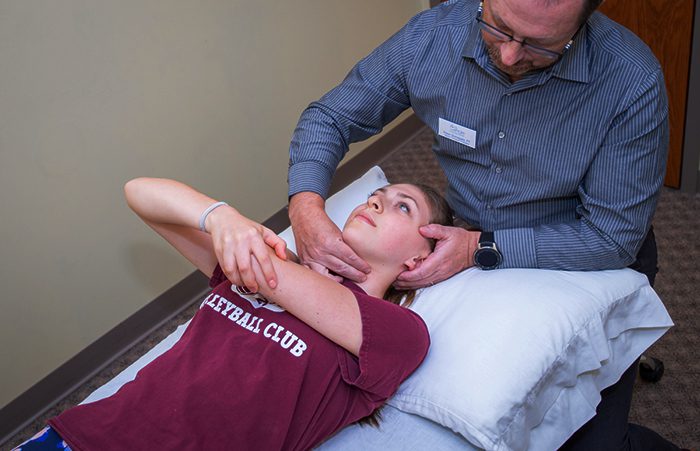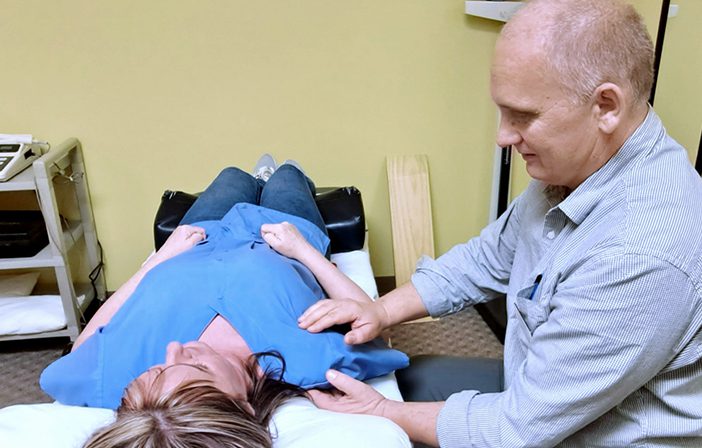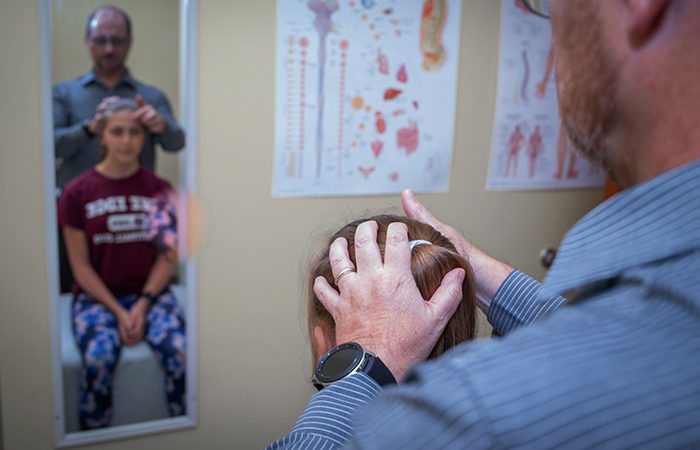The Strain Counterstrain Technique
THE STRAIN COUNTERSTRAIN TECHNIQUE
Strain Counterstrain (SCS) is a gentle manipulation technique, effective in treating pain, limitations in strength, and range of motion of the ailing areas. The procedure is painless and can be applied to all body parts and systems. Therapists exploit tender diagnostic points to recognize painful, reflexively protected, and contracted tissue. Contractions arise in skeletal muscle tissue, the body’s deep fascia layers, or smooth muscle structures as a protective response to trauma. The Strain Counterstrain method enables a therapist to alleviate the spasms of the targeted area – muscle and connective tissue. It uses passive positioning of contracting muscles and deteriorated joints toward the position of comfort or tissue relief of the offending muscle.
WHO CAN BENEFIT FROM STRAIN COUNTERSTRAIN?
The Strain Counterstrain technique can be utilized in patients suffering from chronic pain related to the diseases such as complex regional pain syndrome (CRPS), fibromyalgia, or osteoarthritis as well as acute traumas related to vehicles, sports, and other injuries. Since Strain Counterstrain is so gentle and non-traumatic, it is safe for and might bring tremendous positive effects even in most fragile patients – expecting women with pelvic pain, patients experiencing post-surgical trauma, or elderly patients suffering from osteoporosis or incontinence.




This revolutionary method also brings great effects in treating the pain associated with excessive joint activity or hypermobility. As a result of the Strain Counterstrain therapy, we can observe a decrease in pain and swelling as well as muscle guarding which accelerates the healing process and can lead to full recovery. Many patients report lasting relief of chronic conditions and that after only one or two treatment sessions, attesting to the methods’ tremendous effects, reaching far beyond temporary quality-of-life improvements.
CONDITIONS TREATED WITH STRAIN COUNTERSTRAIN:
- Complex regional pain syndrome (CRPS)
- Chronic edema
- Digestive dysfunctions
- Neuropathy
- Migraine and non-migraine headaches
- Peripheral arterial disease
- Balance disorders
- Seizures
- Tinnitus
- Depression
- Fibromyalgia and other systemic conditions
- Musculoskeletal conditions in all regions


